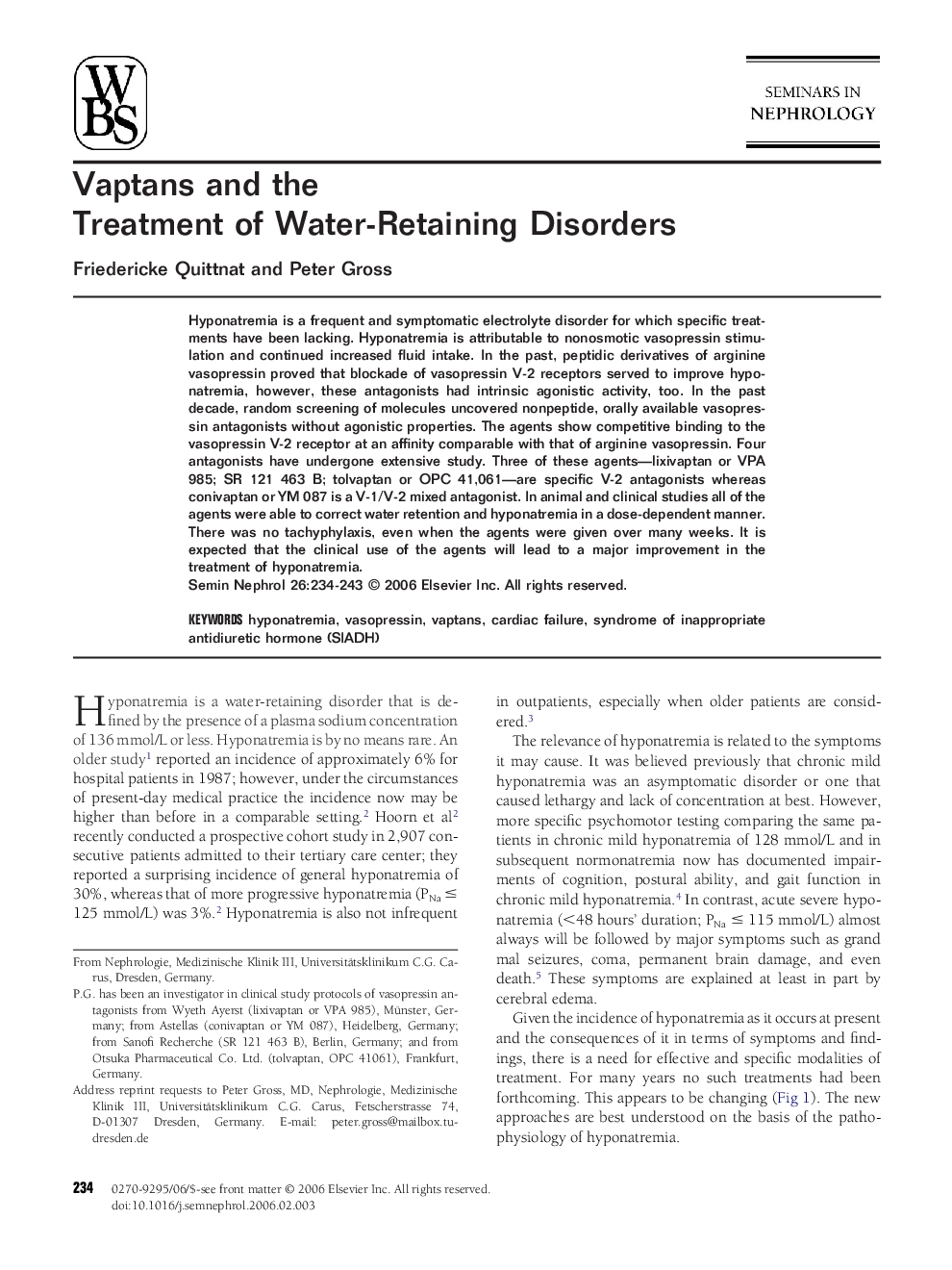| Article ID | Journal | Published Year | Pages | File Type |
|---|---|---|---|---|
| 3897479 | Seminars in Nephrology | 2006 | 10 Pages |
Abstract
Hyponatremia is a frequent and symptomatic electrolyte disorder for which specific treatments have been lacking. Hyponatremia is attributable to nonosmotic vasopressin stimulation and continued increased fluid intake. In the past, peptidic derivatives of arginine vasopressin proved that blockade of vasopressin V-2 receptors served to improve hyponatremia, however, these antagonists had intrinsic agonistic activity, too. In the past decade, random screening of molecules uncovered nonpeptide, orally available vasopressin antagonists without agonistic properties. The agents show competitive binding to the vasopressin V-2 receptor at an affinity comparable with that of arginine vasopressin. Four antagonists have undergone extensive study. Three of these agents-lixivaptan or VPA 985; SR 121 463 B; tolvaptan or OPC 41,061-are specific V-2 antagonists whereas conivaptan or YM 087 is a V-1/V-2 mixed antagonist. In animal and clinical studies all of the agents were able to correct water retention and hyponatremia in a dose-dependent manner. There was no tachyphylaxis, even when the agents were given over many weeks. It is expected that the clinical use of the agents will lead to a major improvement in the treatment of hyponatremia.
Keywords
Related Topics
Health Sciences
Medicine and Dentistry
Nephrology
Authors
Friedericke Quittnat, Peter Gross,
